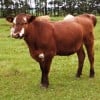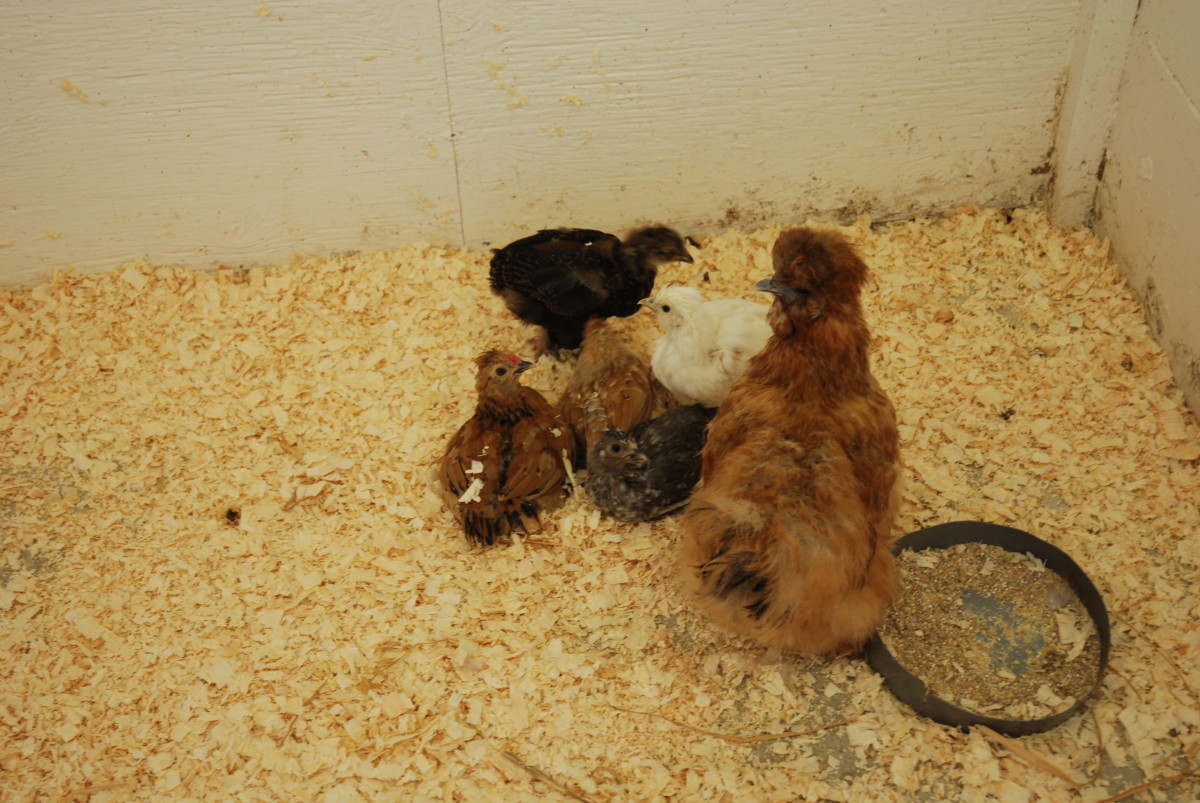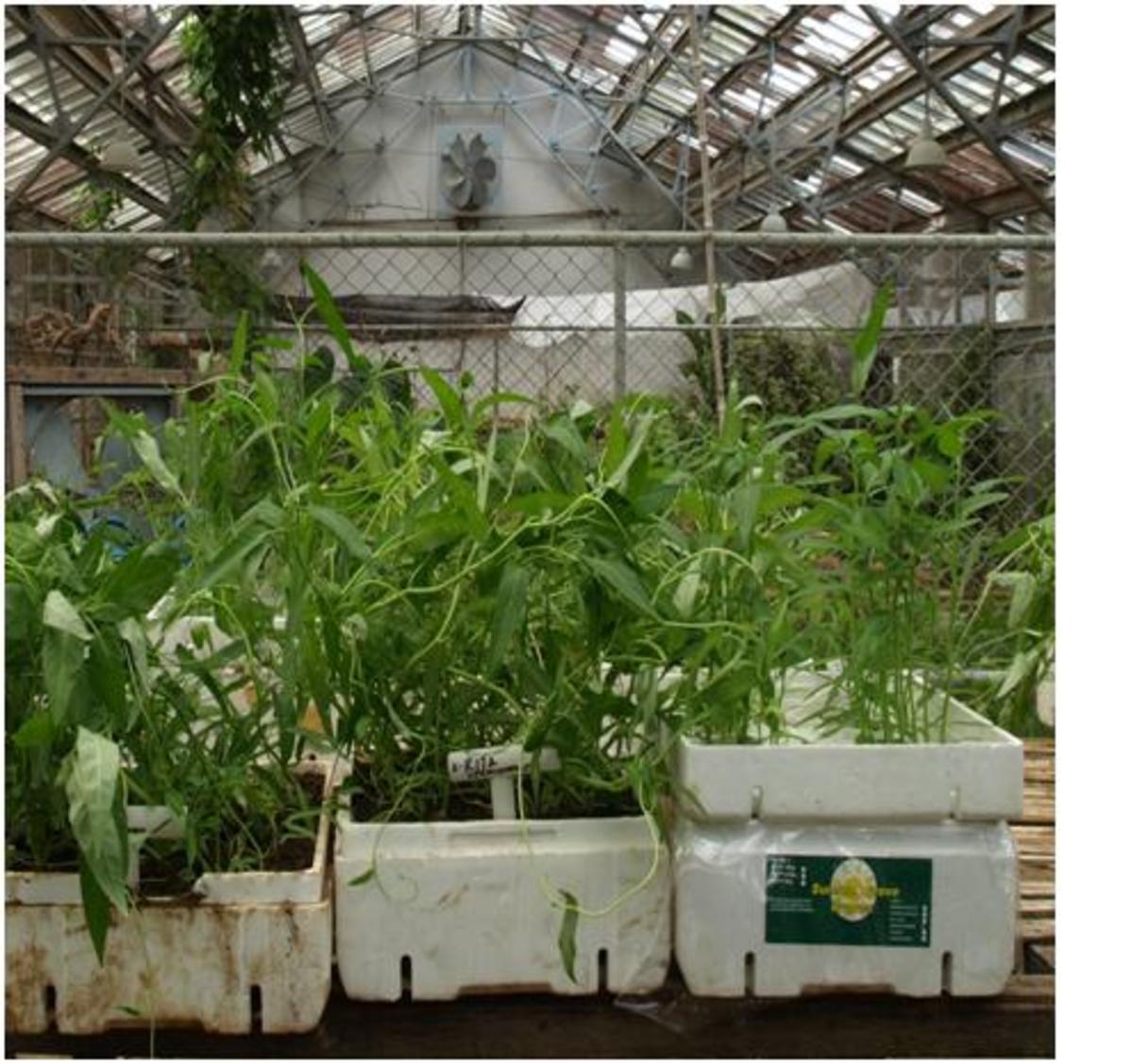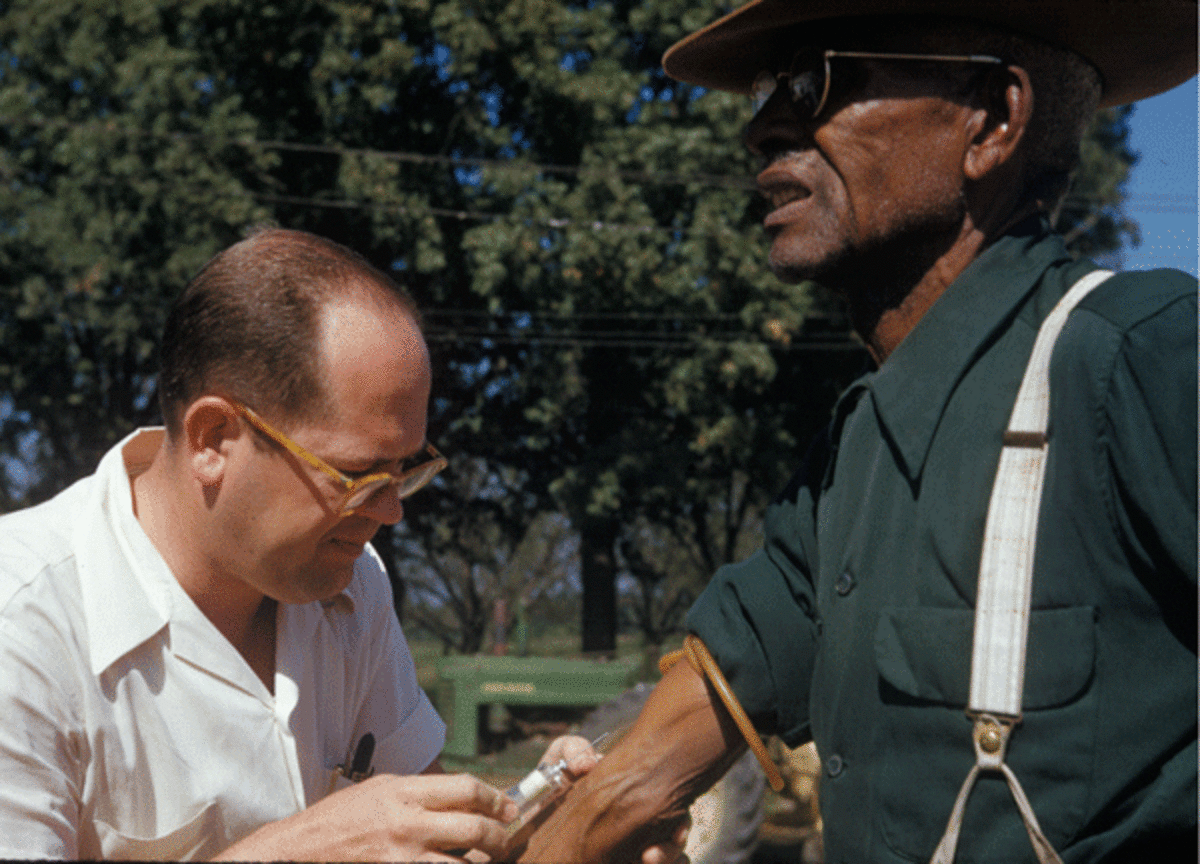The Vegan vs. Omnivore Debate Part 5
Why vegans want to even think that they have the upper hand to environmental issues is, to me, completely ludicrous. Sure they're saying that their being "selfless" by not eating animals, since it is "an infringement of their rights" to slaughter, much less eat them, but it seems to me that they only do this because of the fact that they, the vegans and animal activists alike, are only doing this because they have made veganism a religion, just like Christianity or Buddhism, and because they are primarily basing their strong arguments on emotions instead of science and reality. Most of the things they try to put out to the public are only half truths. Veganism versus "omnivorism" is a question and a debate of ethics no doubt, as you have read over the last four parts of my series of this on-going debate between the two parties, and try as we might to put all the facts and fiction and myths and truths to rest, there still will be people out there too blind and too convinced about what they believe to open their minds to the other half of the story. Anyway, to finish this last part-series about vegans versus omnivores and all the things that have been argued over time and time again, I would like to conclude, as I started, about the environment. Only this time I will not be talking about just greenhouse gases, but other aspects and implications of the environment that may influence what is really the right diet to follow.
I've argued points about crop agriculture to different vegans I've cyber-talked with in comparisons with animal agriculture. And I'm not afraid to do so here. I've heard many claims that growing crops, fruits and vegetables contributes far less to environmental damage and greenhouse gases than raising livestock. Like I said before, these vegans love to tell their half-truths without seeing the other part of the story or reality, whichever you prefer. When vegans mention "animal agriculture" or any form of livestock production, they always are referring to factory farms, never to farms who raise their livestock in a more natural environment, and the main thing that comes to mind when factory farming is mentioned are cows. This is what gets me. The other thing that gets me is that 99% of the vegans I've chatted to don't even live on a farm, much less had experience with farming. Now don't get me wrong, I do understand that raising animals in a factory-farming environment carries more environmental concerns than raising crops or vegetables, with all the equipment and facilities needed to seed, fertilize, spray, and harvest crops then store them for later use for animal feed, not to mention manure disposal. But let's not go that route here. Instead, let's simplify things a bit to make it a little easier to follow and see how this argument gets going. Let's compare a beef cow-calf operation that manages cows on just grass and hay (as this is what most cattle producers are going for today now that feed prices make it just too expensive to supplement the cows with grain), with your typical grain farm that grows nothing but corn and soybeans in a rotational two-crop system.
But before I say anything further, there is just one more thing I want to bring to the table. I, personally, do not agree with factory farming, and I never will. I believe, as I mentioned in the previous hub I posted yesterday, that factory farming is not only an endemic that has contributed to major health concerns in much of the North American population, if not the world, but also to much of the greenhouse gas concerns that the EPA and the UN's FAO are whining about. I am a meat eater, always have and always will be, but you can bet your boots that I never ever like eating the red stuff they call "beef" that is wrapped in cellophane and served on a styrofoam platter that tastes like cardboard. I prefer home-raised beef, particularly grass-fed, naturally-raised beef. You can't get ANYTHING better than locally raised, home-grown beef. Now I will continue with the comparisons of the two scenarios mentioned above.
Two Scenarios: Corn Farming vs. Traditional Cow-Calf Production
If you look at the geography of North America, you should make note of the amount of land that is set aside for cropland and the amount of land that is not suitable, in anyway, shape or form, for growing any kind of crops. There really is only 5 % available land for growing grains, fruit and vegetables. The rest of it is in contention for being used for cities and suburbs to expand on, highways to be built on, and industrial plants to be built on. Now, take a look at the amount of land that can be (and is) used for grazing and raising livestock. The land that isn't occupied by roads and highways, national parks, industrial parks, airports, suburbs, and cities nor can be used for crops is far larger. These lands that are used for grazing include mountainous and hilly terrain, forested areas, deserts, areas where soil quality is poor, and where native rangelands are being conserved by ranchers and federal lands set aside for grazing and wildlife habitat. These lands are more commonly found in their natural state than those lands that have been converted by man (i.e. cropland). Livestock can easily cover these areas because they are able to: they do not have tires, nor a high center of gravity that makes it easy for them to tip over if they attempt to climb or descend a hill or mountain, nor will they break down if a rock gets in working parts of their "machine."
With those things in mind, let's now take a look at the inputs that goes into a grain operation versus a grass/hay only cow-calf operation. In comparisons, a grain operation takes more inputs per unit and more labour to accomplish the end product than a cow-calf operation with good cows and good grazing practices do. And here's why. A grain operation involves many types of machinery, including often more than one tractor, augers, grain bins, combines/harvesters, swathers/windrowers, tillage machinery, a herbicide sprayer, and seeding equipment. With this amount of equipment, and lots of operation time it takes to run these pieces of machinery over the fields, there is more fuel (derived from non-renewable petroleum resources) that is used over the corn-growing season, and hence lots of greenhouse gas emissions. When corn is being seeded, fertilization is necessary. Fertilizers involve use of more petroleum-based products, infused with the naturally-"made" nutrients that would be found in the soils if they weren't mined for their nutrients by crops so much. Many farmers are too lazy to send in a soil test every year to see what nutrients their soils are lacking, so they just overdo on the fertilizer just in case the corn plants need a little more this year, so to speak. And when the corn plants reach a certain height, or other grain plants, herbicide, pesticide, fungicide and/or insecticide has to be used to dispel any sort of maladies and pests that come with growing a monoculture crop. This is also petroleum-based. As the corn plants grow and put their growth into seed, they take all the nutrients that still remain in the soil that haven't leached away with any hard rains or wind, essentially "mining" the soil of most essential nutrients. When those corn plants are harvested, the kernels that are taken away take with them the nutrients they have taken away from the soil, never to be given back until the next spring, when the farmer sows in more fertilizer with the next corn or soy crop. These costs add up in not only environmental concerns, but also in terms of monetary value.
A cow-calf operation, on the other hand, uses far less fuel and fertilizer inputs than the corn farmer above, and virtually no pesticides or fungicides nor herbicides of any nature. Most of the fertilizer that is "put on" the pastures and fields come from the cows and calves themselves, in the form of manure. Fuel is only used to check on the pasture and the fence-line by a pick-up truck or ATV, and in the tractor when it's time to cut hay and bale it up. A good grazing management operation involves little time spent on the tractor feeding hay during the winter months. The cows and calves "harvest" the grasses and forbs themselves, and put back into the earth what they don't need for their bodies and for raising their calves. Much of the pasture and range that is used for grazing isn't even tilled over, because of the way it has been properly grazed. Carbon that would be emitted by the tonne by a corn farmer on his tractor is put back into the soil by the very thing that makes rangelands and prairie habitat what it is: Grass. Legumes that grow along side the grasses help put nitrogen into the soil helping the grasses grow more thicker and fuller. Waste from the cows in the form of urine and feces also help in this natural process. Methane and nitrous oxide emissions from cows at this point is immaterial, because this more natural way of raising cattle is obviously more healthy for the environment than operations that grow crops of grain and vegetables.
Grasses not only help hold the soil together, it also deters from soil and water erosion which commonly results in many nutrients being blown or washed away if the soils were laid bare. Trees to contribute to reductions in carbon dioxide in the atmosphere, but so does grass. And to a larger extent, grass sequesters more carbon from the atmosphere than trees do.
The thing is, of all else, is that we should be responsible for what we eat, no matter what kind of diet we follow or who we are. We should be more aware of what we put into our mouths than we are today, and not get caught up in the extremities that we tend to see a lot more of. Sure a vegan diet is more healthier, but I've shown you that it is no healthier than trying to follow a junk-food diet, though slightly moreso. Therefore I leave you with this: If you do not want to support factory farmed animals, buy your meat from the farmer's market or from a local producer. And to all of you meat eaters out there, don't be discouraged by the propaganda put out by those vegans who want to change the world. And don't ever buy into the ludicrousy put out by HSUS, PeTA and the EPA. They'll do anything to try to get the general population on their side, even if it means through false advertising and manipulative bribery, in a manner of speaking, to ban anything to do with the use of animals. Finally, try to look past the factory farming, and look more into the efforts put out by family farms and small-time farmers who raise livestock in their more natural conditions, and see if you think that those farms are better at raising their animals than what the animal activists make them out to be.








